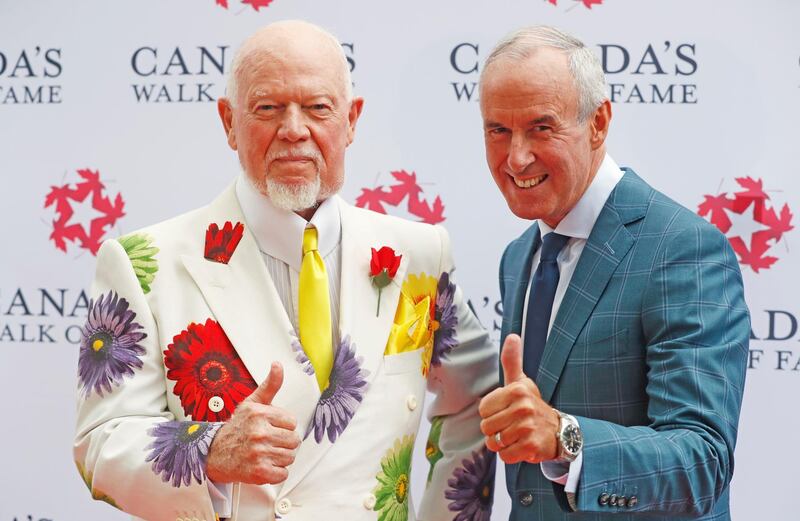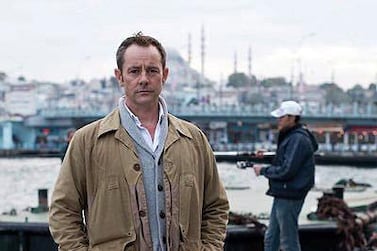“You people” is such an insidious phrase, dehumanising in its absence of distinction; signifying all "you people" from that country, of that faith, with that skin colour. There is a pretence of acknowledgment in the directness of the address, but it is subverted right away with a dismissiveness that says you do not have a story – at least, not one worth remembering.
Last week, longtime TV personality and ice hockey commentator Don Cherry was fired from his flagship show Hockey Night in Canada for using that very phrase. He bemoaned "you people" who "come here, whatever – you love our way of life, love our milk and honey" but apparently failed to show adequate levels of patriotism by not wearing poppies on their lapels to honour war veterans on Remembrance Day. He finished by saying: "These guys paid for your way of life that you enjoy in Canada." In the ensuing outcry, Cherry was fired by the show's broadcasters Sportsnet but failed to apologise, only claiming he should have said "everybody" instead of "you people", telling the Toronto Sun newspaper: "I know what I said and I meant it."
Cherry’s statement of course implies that there is an “us", that mythical, pure, utopian – and presumably white – society that existed before “you people” came and ruined it with all their otherness. Cherry’s respectable "way of life" includes people who look like him and precludes those who do not. Only some will ever really belong and be true Canadians and heirs of the land. It is an inevitable conclusion in a landscape that is more diverse than its representation and where issues of systemic discrimination are swept under the rug.
Let me start by saying I have never watched a game of ice hockey in my life (given away by the fact I still call it ice hockey rather than simply hockey, although I do plan on changing that as I settle into life in Canada as an immigrant). And until last week I was only tangentially aware of Cherry’s existence.
I also confess that I do not quite know what to make of the concept of jingoistic pride in the military, which seems to me pervasive in western societies, given their complicated and partisan history of intervention and imperialism in political affairs in other parts of the world. I have chalked it up to the overt displays of nationalistic patriotism that have become the norm in our time, edging out that newly dirty word, cosmopolitanism.
I am also a new immigrant, having arrived in Canada a little over a year ago. I cannot imagine the pain Cherry’s words have caused those who came to this country decades ago, helped build it and make it what it is, and sacrificed their lives in battlefields near and far to protect their adopted homeland. The bullets that pierced their flesh made no distinction based on skin colour or where they were born.
But I do have a son who was born here, and he is as much a Canadian as Don Cherry is.
In the months leading up to our move to Canada, I was filled with doubt. It went beyond the sacrifices of living without our family and friends, their warmth enveloping us in the darkest of times, or giving up a career as a journalist covering the Middle East, or leaving behind everything we knew. Our departure was preceded by the election of US President Donald Trump, the US ban on visitors from Muslim-majority countries, the rise of the far right across Europe, the Quebec mosque shooting, rising white nationalist sentiment and neo-Nazis marching in the street.
A month before my son was born, the Christchurch massacre in New Zealand happened. I was shaken to the core. I went to bed distressed that night, asking myself if anywhere was safe, if we could belong anywhere, if we had made the right choice. In the months leading to our departure from Istanbul to Montreal, I had asked myself: “Why should we go if they don’t want us there?”
It was the same mistaken dichotomy, borne out of fear, that Cherry would peddle; the idea of "us" and "them" manifesting itself once again. But there was no polarised "us" and "them". There were, of course, racists. There were those who feared the changes happening rapidly around them. There were those who welcomed newcomers. There were those who did not care one way or the other. There were those whose land it was, long ago before it was colonised, and they didn't seem to have much of a say, nor were they championed by people like Cherry who laid claims to a society that predated "you people".
I’m not sure if my thinking evolved, or if the sight of a vulnerable little baby, who will have to find his own way in the world one day and pare away the layers of his identity, has given me new strength and resilience. But I no longer believe in lowering my gaze and just meekly "walking along the wall", as the Arabic saying goes. In a time of rising hatred and tribalism, it is incumbent upon us all to fight back, to declare that we belong as well. For the first time, I feel like my life has value, that I have a say in what happens around me and I don’t want to give that up. I want to be part of it and to give back.
I think that’s the right approach anyway. Who knows if it is? Not Don Cherry, that's for sure.
Kareem Shaheen is a former Middle East correspondent, now in Canada






